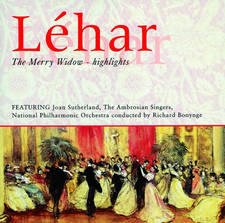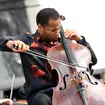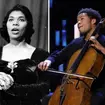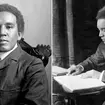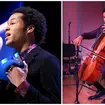Kadiatu Kanneh-Mason: ‘Black boys in state schools are not expected to pick up an instrument’
2 September 2020, 09:39 | Updated: 2 September 2020, 12:25
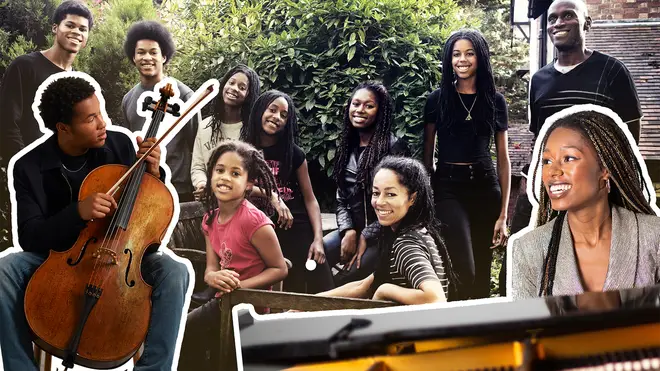
The mother of seven extraordinary musical children talks to Classic FM about race in classical music, the true nature of talent, and raising a household full of music and love.
“Do they still have a normal life?” That’s a question asked frequently of Kadiatu Kanneh-Mason, the mother of cellist Sheku-Kanneh-Mason, pianist Isata, violinist Braimah, cellist Jeneba, Konya and Animata who play violin and piano, and youngest – a cellist and pianist – Mariatu.
The answer is it’s an extraordinary life, of course. But one with plenty of ordinary pursuits, like football, competitive games of Monopoly and muddy-kneed farm scrambles with grandparents in Wales, as the mother of seven’s new book, House of Music, attests.
‘Did you have to force them to practice?’
“They also ask ‘did you have to force them practice?’,” Kadiatu confides. “I think there is an idea that classical music is somehow a really painful torturous thing that no one would do unless they were forced to do it. If the boys were famous footballers, no one would ask ‘did you force them to kick a ball?’”
She continues: “The idea that classical music is a joyous thing and is fun to do would be nice for everyone to know! I know it’s hard work and you have to practise, but you have to practise for anything you do to be successful in it.”
Read more: Sheku: ‘Classical music isn’t racist. It’s about access to music education’ >

Classical music isn’t racist, insists Sheku Kanneh-Mason
The Kanneh-Mason family is extraordinary for its musical talent, but also because they’re a Black family in classical music, a world that’s not famous for diversity.
‘Black boys in state schools are not expected to pick up a musical instrument’
“Black boys in state schools are not expected to pick up a musical instrument,” Kanneh-Mason tells Classic FM.
But the Kanneh-Mason family smashed expectations, and Kadiatu counts herself and her family lucky to have come across state school Trinity Catholic School in Nottingham, where the staff and environment nurtured musical talent. “At Trinity, music was something that everyone did. It made a real community out of the school, and people were so encouraged and it was a wonderful experience.”
Kanneh-Mason acknowledges there has been some progress when it comes to people of diverse racial backgrounds accessing equal opportunities in education, including in classical music, but warns that “things are sliding back” and “in some ways the barriers are getting worse again.”
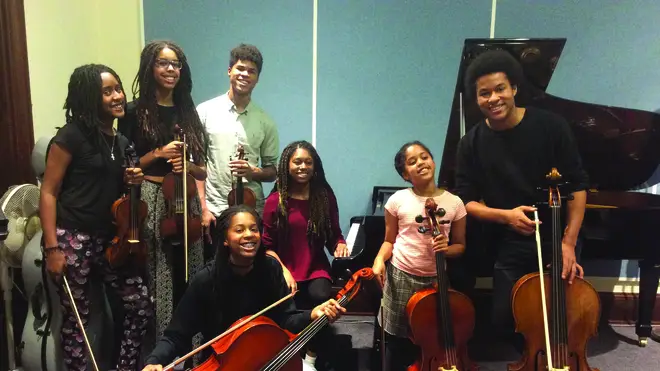
‘Everything starts with music in schools’
“Everything starts with music education in schools,” Kanneh-Mason explains. “There are so many more barriers in that area at the moment due to lack of funding and, even before the coronavirus pandemic, budgets shrinking.
“Music isn’t being counted as a valid as a subject in schools. If you don’t have any quality of education with music, it’s going to narrow the kind of people who are able to get into it in the first place.
“And then once you’ve got expectation and you’ve got audiences that are not diverse and players who are not diverse, there’s a psychological barrier as well as a social one as well as a financial one, which is going to put a stop to the widening of diversity.”
Read more: Meet the Kanneh-Mason family >
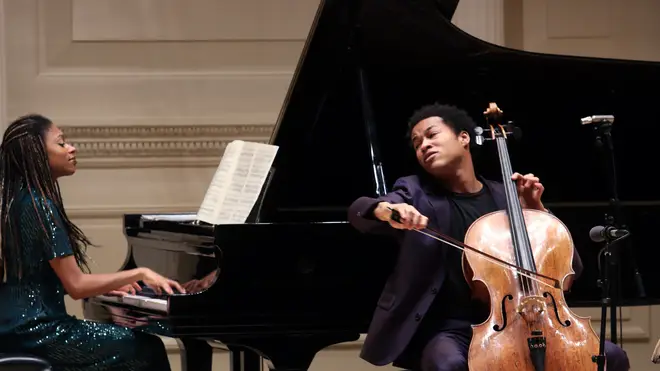
‘Seeing what it is you can be is very important’
Societal expectation and having role models that reflect you are both incredibly important when it comes to lifting the barriers Kanneh-Mason talks about. “Seeing what it is you can be is very important,” Kanneh-Mason confirms.
She believes in the power of dreamers, and thinks dreaming plays an equal role in changing lives and nurturing talent. “You have to be able to imagine doing and achieving, and you have to have the desire as well. Without that magical desire, which is what dreaming is, I don’t think you can achieve anything. It’s a non-starter. So definitely dreaming is absolutely important.”
The mother of seven continues: “If you ever talk to Sheku (pictured above performing with his sister Isata), he’ll say, ‘There’s no such thing as talent. It’s all about hard work and vision.’ And I agree, talent really is the tiny starting point, and the rest really is that you’ve got to really want it. You’re not going to do the hard work without the desire.”

Sheku Kanneh-Mason plays 1783 Guadagnini cello owned by Rostropovich
So, what exactly is talent? We have a family here of seven ridiculously accomplished musicians – can it be explained by the word talent, or its big sister, ‘genius’?
‘I think all children actually have genius’
“I think all children actually have genius,” Kanneh-Mason says. “It’s all about championing it. What we saw in Isata our eldest was incredible facility and we decided to channel it in music, and absolutely encourage it.”
Isata’s mother and father also instilled the importance of hard work to get there, in Isata and her brothers and sisters. “Genius is something you really, really want to do, which is probably more important than something called ‘talent’. It’s loving something, wanting to do it, having the thirst to do it, and then channelling that hard work. It’s not something you are born with, because if you do nothing about it, it goes nowhere.”
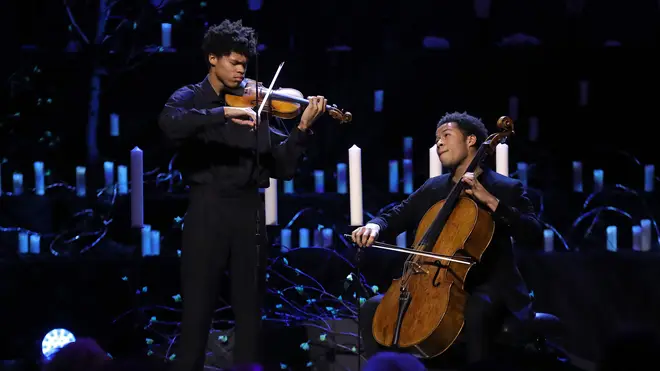
‘Everything was focused on music during lockdown’
The Kanneh-Mason family was as impacted by the coronavirus pandemic as all musicians around the world. After the initial shock of travel and concert cancellations, all seven of them began to perform live-streamed concerts from home.
“Everything was focused on the music during lockdown, and the children explored so many things together that they wouldn’t have had time to do if lockdown hadn’t happened.”
It was a bittersweet time.
In general, it’s been really important for their sense of togetherness that the siblings have all made music at this level together. In her brilliant new book, House of Music, Kadiatu writes extensively about the wonderful support network they all have together, even if it has been accompanied by almost-impossible music lesson drop-off coordination – and piles upon piles of laundry!
“They’re very, very close knit and they all understand each other,” Kadiatu tells us. “They understand how hard the work is and they understand the psychological burden of having to get up every morning and practice.”
It makes for an invaluably supportive and loving environment where they can all speak the same language.
Kadiatu Kanneh-Mason’s book, House of Music, is out now. Visit www.kannehmasons.com to find out more about Kadiatu’s extraordinary family.
